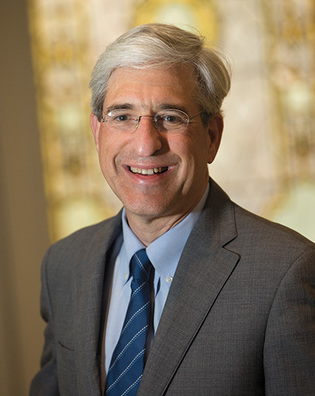 loading
loading
Q&A: Peter SaloveyYale abroadThe president discusses the university’s historic and emerging international connections. The Yale Alumni Magazine regularly holds a conversation with Yale president Peter Salovey ’86PhD to provide a forum in which alumni can learn his views. (Interviews are conducted both in person and by e-mail and condensed for print.)  Mark OstowIn this issue, Salovey talks about some of Yale’s international work, particularly in China and Africa. View full imageYale Alumni Magazine: Yale has had international connections for a long time—even before Elihu Yale sent his gifts from Britain. What do you consider to be Yale’s global role today? Peter Salovey: The major challenges facing us today are global in scope—climate change, health and well-being, human trafficking, just to name a few. As one of the world’s leading research universities, Yale has a responsibility to create knowledge and understanding that improves the world. So we must be focused on issues of global importance, and we need research partners who will work with us to address these complex problems. Forging international partnerships allows us to accomplish far more than we ever could on our own. An international perspective is essential to fulfilling our educational mission as well. Yale is the global research university that puts our students at the center of everything we do. We look for promising students who will use their Yale education to make a powerful impact after graduation. That means attracting the best students from all over the world. At one time, Yale students came from just a few schools in the Northeast. Today, they hail from 121 countries. The consequence is an exceptional educational environment for all our students. Y: Yale has a long history in China, dating to 1835, that continues today. S: We have many outstanding partnerships in China, including collaborative research and dual-degree programs with several Chinese universities. Nearly 800 Chinese students are attending Yale this year, and over 150 Yale faculty have told us that they have research projects or other activities related to China. For example, the Shanghai Jiao Tong University–Yale Joint Center for Biostatistics was established in 2014 to harness the power of “big data” to advance research on cancer and cardiovascular and metabolic diseases. Nanotechnology, genetics, environmental science, nursing, and leadership are the focus of other partnerships, which touch nearly every part of our university. The free exchange of ideas is absolutely vital to any university, and one of Yale’s roles is to model this commitment, even across borders. We can promote openness and free expression by engaging with international students and scholars. In the face of a trade war, for instance, we can ensure there is no trade war on scholarly communication by collaborating as equal and ethically committed partners. Y: In your inaugural address, you said expanding Yale’s partnerships in Africa would be among your priorities. S: Africa is in the midst of tremendous growth and change, and several of the world’s fastest-growing economies are on the continent. African scholars are enthusiastic about working with us to advance research and education in critical areas like health care, poverty, and the environment. The benefits to humanity from Yale’s partnerships in Africa could be felt for years to come. I am proud to be the first Yale president to visit Africa during his or her presidency. During my visit last March, I was amazed by what I saw: our bilateral partnerships are already yielding results, and the potential for further collaboration is extraordinary. Many research projects are simply impossible without on-the-ground partners. For example, we extended a collaboration between Yale, the Kenyan Agricultural and Livestock Research Organization (KALRO), and Kenyan Wild Life Services to study tsetse fly–transmitted diseases, which cause immense suffering and limit prosperity across sub-Saharan Africa. Now tsetse-fly parts are transported to our laboratories at Yale, where our faculty are working with African scientists to understand and manage diseases like sleeping sickness. Addressing other critical challenges in public health, such as malaria and HIV/AIDS, also requires international partners. In Africa, we are opening up avenues of discovery that would otherwise be closed to us. These research collaborations could be transformative for millions of people. Preparing leaders is part of Yale’s mission, and we are helping to do that in Africa. About 200 students from Africa are now studying at Yale, double the number from five years ago. In March, we celebrated Strathmore Business School in Kenya joining our Global Network for Advanced Management at the Yale School of Management—the fourth African university to join. We also announced two new full scholarships that will allow African students to pursue MBAs at Yale. And the Yale Young African Scholars program provides academic enrichment and mentoring to promising high school students—an investment in the continent’s future. Our alumni exemplify Yale’s commitment to educating leaders who shape our world. It was a privilege to meet alumni who are leaders in their countries, such as Ken Ofori-Atta ’88MBA, the finance minister of Ghana, and Patrick Njoroge ’93PhD, governor of the Central Bank of Kenya. Our alumni in Africa are proud of their Yale roots, and they have created vibrant alumni clubs in Ghana, Nigeria, Kenya, and South Africa. Alumni around the world channel excellent students to our campus and help us create new partnerships. I am encouraged by Yale’s international partnerships; they affirm the great potential of education and research to “improve the world today and for future generations,” in the words of Yale’s mission statement. Looking ahead, I am confident we will continue to find partners worldwide who will join Yale in creating new knowledge, preparing leaders, spurring innovation, and sharing our discoveries with the world.
The comment period has expired.
|
|